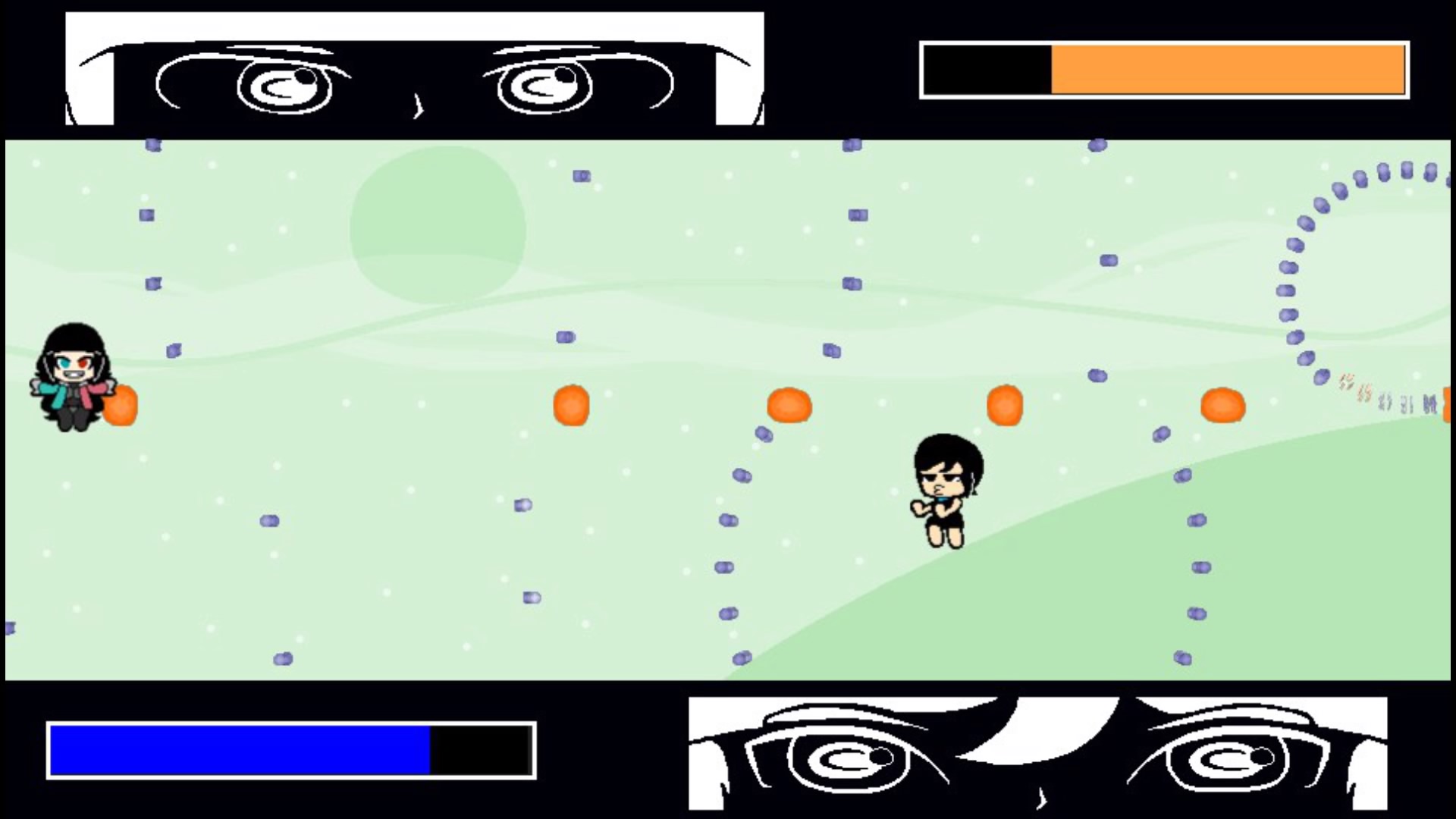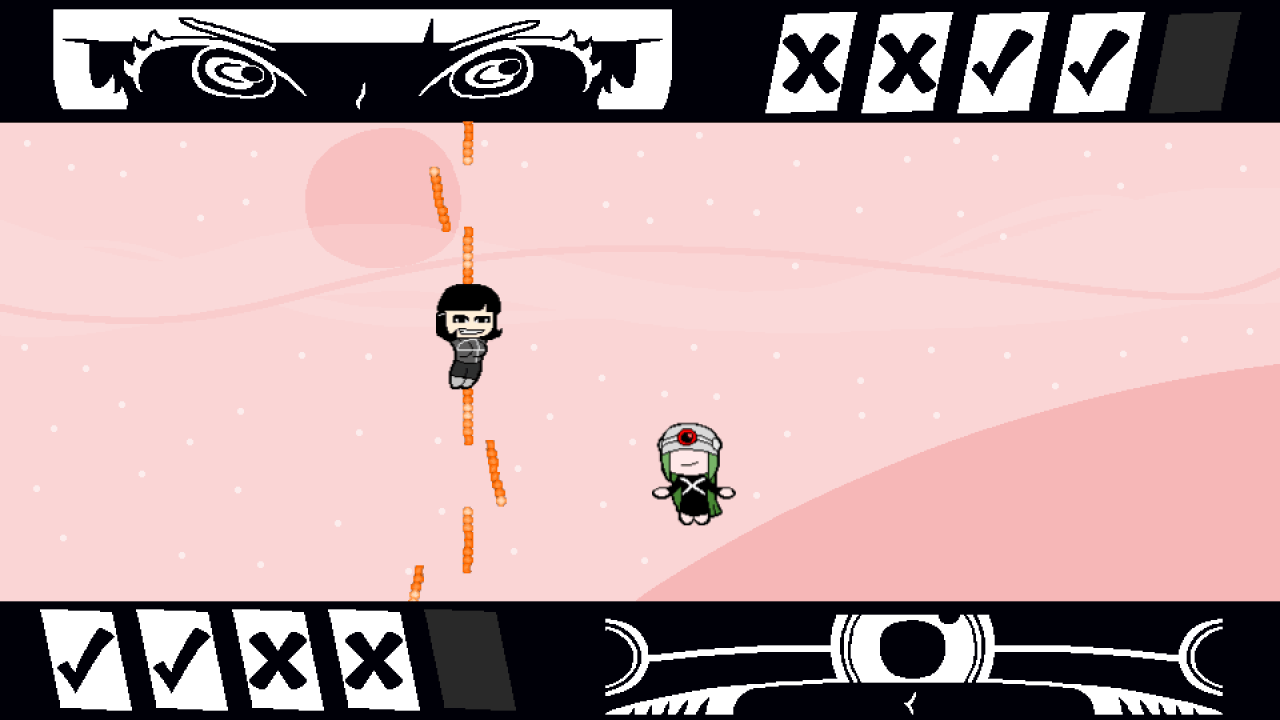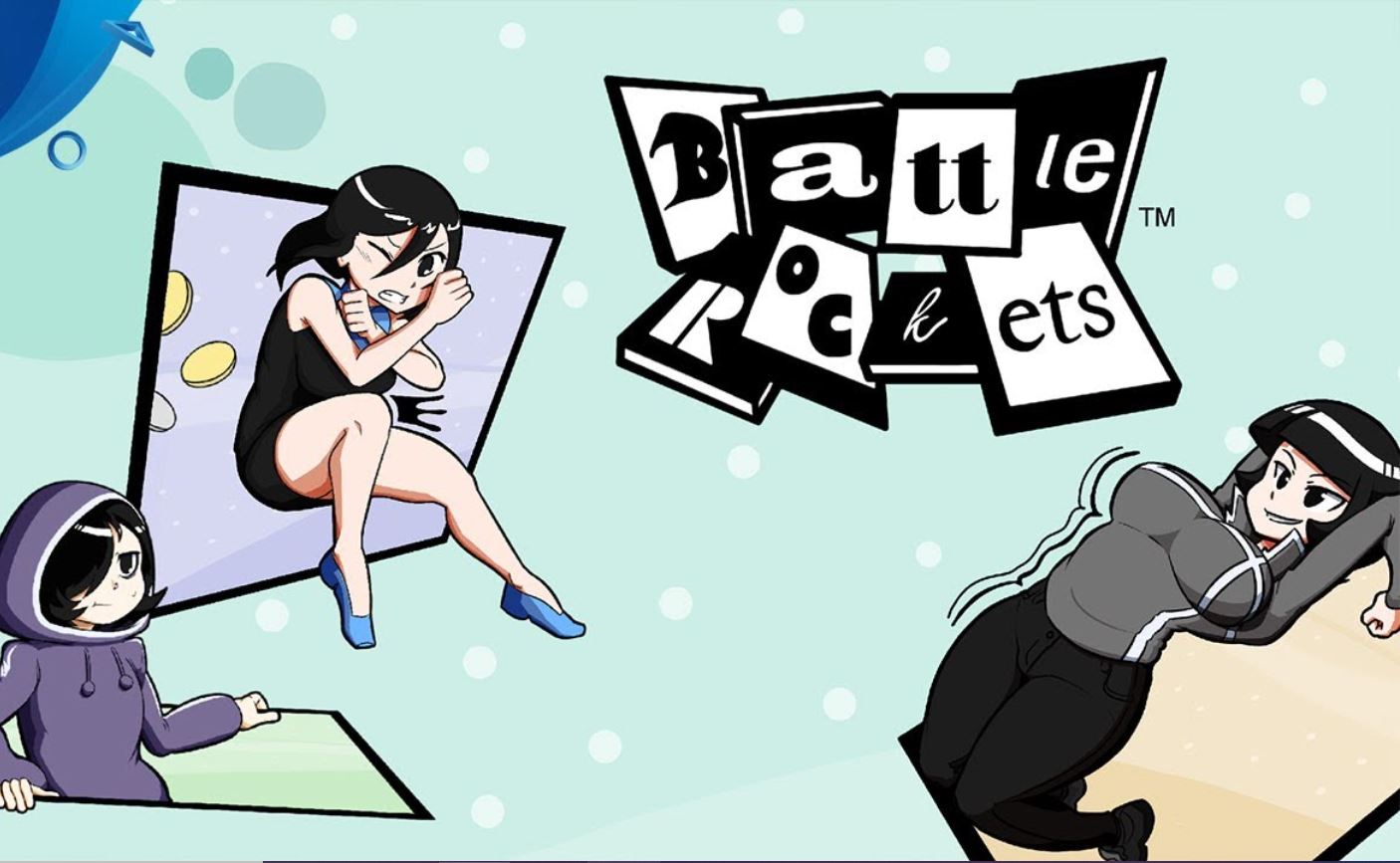The idea behind Battle Rockets is a smart one, but the execution leaves a lot to be desired. The Finger Guns Review.
Let’s admit it. The PSVita had been on life support for years before they finally took it to the woodshed in July of 2021. That support had almost exclusively come in the form of indie games. Even those were ports of games that were widely available elsewhere. It had been increasingly rare to see a game release exclusive for or designed especially for the PSVita this past few years. That makes Battle Rockets from Gumbo Machine (developer of the Vita’s last game Ultra Mission) a bit of a rarity. It’s a PSVita exclusive and it’s certainly designed around the handheld’s specific form.
Battle Rockets feels like a Shmup game that is somewhat divorced from its itself. By that, I mean that the name, branding and key art are unlike the game itself. While the characters definitely do battle in this game, there’s no rockets in sight. Not a single one. Those busty anime styled women in the header image and on the trailer? Well, they’re in the game but look like little Chibi versions of them. Once you see through the façade and start a game, Battle Rockets is less appealing.
The game is split into 2 sections – single player and two player. Let’s start with the former as it’s the least impressive. The solo play in Battle Rockets consists of 8 different challenges, each of which can be played on 2 difficulty modes. While they’re mechanically the same, the objective of each of these 8 challenges is different. Every test is housed within a single screen in which you control either one or two (but mostly, just one) as you attempt to fulfil the win condition.
Tiny tests of tactility
Each of the 12 characters in Battle Rockets has their own offensive abilities, mapped to 4 buttons on the Vita. In the 8 challenges in the single player content, you won’t get to choose your character. Instead, this content gives you control of some character in turn, like a tour of what they can do. While the aim is different, you’ll be moving around the screen and shooting stuff in all of them in a similar fashion.

In one level, the game asks you to completely avoid a trail of bullets dragged by a character for a set amount of time. In another challenge, money bags enter the screen and can be shot, spilling out its contents. The aim of this test is to have collected more money than the AI controller character once the time runs out. These challenges drastically vary in difficulty. Some of them last a matter of seconds and are so easy, they barely deserve the name “challenge”. Others are annoyingly difficult. One challenge asks you to defeat an AI opponent with just one particular type of fire power before your HP runs out. This is simple enough so long as you take your time, but the play is so monotonous that the real challenge is to try not to rush through it and die.
All counted, there’s less than an hour’s worth of single player content in Battle Rockets. Half of that is bland and uninteresting. There’s no reward for completing these challenges (beyond unlocking a Platinum trophy) on either difficulty setting. There’s no leader boards. There’s the vague whiff of a storyline but that can only be found in a paragraph of text in the challenge description. Because of that, it’s tough to find the motivation to bother with the stiffer tests.
Vita Means… Multiplayer?
Battle Rockets is much better in the other game play mode – multiplayer. In this two player mode, each player holds a side of the PSVita in what is often referred too as a “Vert” position. The thumb stick on each side of the handheld is used to move that players respective character. The face buttons and the D-pad then react as each players offensive buttons. It’s a novel way to facilitate multiplayer on just a PSVita and is designed specifically for this console.
In the Battle Rockets multiplayer, there are 3 game play modes that are variations on the single player content. The first and most interesting is the Cash Grab game. Bags of coins cross into the arena area and can be shot open. The aim is to collect more than the other player before the time runs out. You can shoot each other and while you’ll not defeat one another, you’ll force the other player to drop coins from their total. This mode is fun, frantic and enjoyable. This is the game’s best mode.
Short Fuse is the second of Battle Rockets’ multiplayer modes. Here, both characters spawn on the screen across from one another and you’re free to fire on one another. The player who gets hit by a bullet first loses a round. The first player to win 5 rounds wins the whole game. Games of Short Fuse can be over in a matter of seconds. That’s both a plus and a negative. Matches are frenetic but they’re over before any tension really begins to set in.

The last multiplayer mode for Battle Rockets is Dual Shock. Very much like Short Fuse, both players spawn in the arena and open fire on one another. Here however, each player has a HP bar which will decrease each time they take a hit from enemy fire. Be the last player standing and you win. There’s fun to be had with this mode but matches can drag on if both players know what they’re doing.
In the end though, Battle Rockets can’t make the most of its inventive use of the PSVita’s form. Compared to other multiplayer experiences out there in the gaming landscape though, it’s a relatively poor showing. It’s telling really – if this game had released at the peak of the PSVita’s lifespan, it probably would have felt innovative. Releasing during the long, slow goodbye of Sony’s handheld, Battle Rocket’s feels left behind, much like the console it was released for.
While Battle Rockets is an inventive use of the PSVita to facilitate local multiplayer Shmup battles, it’s just not very fun. That’s especially true of the single player content. The offensive abilities, different for each character, will keep the multiplayer fresh for a little while. In the end though, this game is far too bare bones and lacks depth or longevity.

Battle Rockets is available now for the PSVita.
Developer: Gumbo Machine
Publisher: Gumbo Machine
Disclaimer: In order to complete this review, we were provided with a promotional copy of the game. For our full review policy, please go here.
If you enjoyed this article or any more of our content, please consider our Patreon.
Make sure to follow Finger Guns on our social channels –Twitter, Facebook, Twitch, Spotify or Apple Podcasts – to keep up to date on our news, reviews and features.
